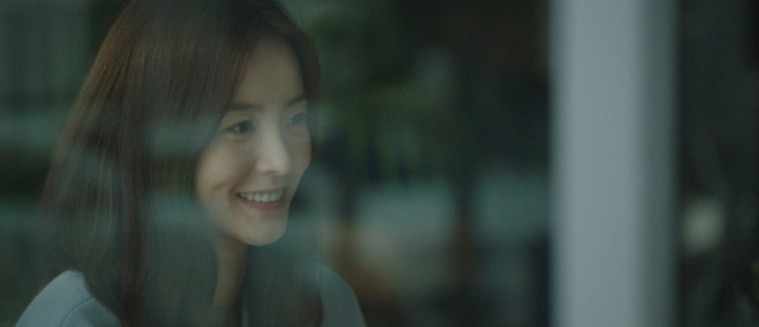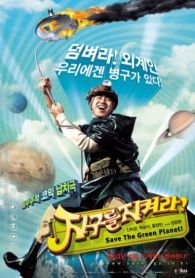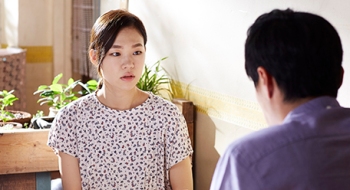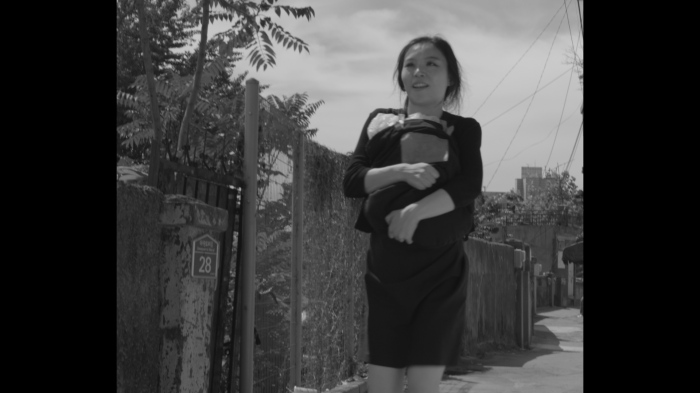
Director Andrew Ahn
During the 2016 17th Jeonju International Film Festival, the young Korean-American director Andrew Ahn came to his parents home country for the 1st time in order to present his feature debut SPA NIGHT. The movie, included in the World Cinemascape section of the fest, was shot in LA but its dialogue is almost 70% in Korean.
It is the story of a young Korean-American boy named David who tries to cope with his parents’ expectations towards his future as well as his own struggles regarding his homosexuality. After his parents are forced to close the restaurant they have been running for years, and lead by his desire to help them financially, David gets a part-time job at a jjimjilbang (spa) in Korea town in LA. He soon discovers that the place is not only used as a traditional sauna but also as a place for gay men from different nationalities to meet each other and make love. After witnessing the love play David realizes his own homosexuality, but with his parent fixated on his future success he is at a dead-end.
Andrew, how much of the story in SPA Night relates to your personal story?
A lot. It is almost as having a different version of my life because a lot of the same fears and anxieties that David goes through in the film are the fears and anxieties I had while growing up. So despite the differences – like I am not an only child compared to David, I went to college, I think emotionally it is a very personal movie.
I cannot help myself asking you about the idea for the SPA as a place to hook-up…
So the SPA… (laughs) I was out to have drinks with some gay friends and one of them told me he had a hot hook-up with a guy in a steam room in a Korean SPA in LA. When I heard that such a family-oriented space is being used for hooking up in the gay community I freaked out but… it was also kind of sexy. That was why I really wanted to make a film about it: it felt like a really perfect meeting point of my gay and my Korean identity.

Traditionally a family space, David soon discovers a sub-culture within the spa
How did it feel to show SPA Night to a Korean audience for the 1st time during the Jeonju Film Festival?
It was really special in a lot of ways. The film is so much about the sacrifices that Korean emigrants make in order to have a family in a country different from Korea. And so to be in Korea, and to see the country that my parents sacrificed to have me in America is really emotional. But you know, while I have been here I kind of have seen also the other side of the story: it wasn’t just my parents who sacrificed something, it was also their family here, in Korea, who sacrificed losing their sons and daughters, their brothers and sisters to the US. And so for me showing the film here was a little bit like me telling that family or the Korean audiences in general that we are working really hard to make their sacrifice worth it too.
SPA Night went to the Screenwriters Lab of Sundance film festival and was screened there. Was the audience’s reaction in Korea different from the one in the US?
In general there were more questions in Jeonju as opposed to festivals in the States, there were also more questions about the immigrant experience. In the US the questions were much more about the individual and the growing and trying to reconcile one’s different identities.
Also when I was in Sundance all the gay press that I talked to was so interested in the cruising and the hooking up, the sexuality elements of the film. But also here in Korea the queer Korean people who have come to watch the movie were really interested in the sexuality elements as well. So I think in general it is very true that the Korean audiences are really hooked to the family story but still I think it depends person by person.
And at Sundance SPA Night was part of the US dramatic competition, right?
Yes. It was awesome: a US festival recognized as American a movie that doesn’t have white actors and with dialogue mostly not in English. And the audiences were really receptive – people came up to me telling me about how they connected to the characters even if they weren’t queer or they weren’t Korean-American.
It’s maybe because most people have had an experience where they faced their parents and told them “I don’t want to be a doctor as you want me to be”…
Yes (laughs). I think it is a very universal story – the story about finding yourself. Obviously it develops within a very specific context but that’s the cool thing about film: we are all human beings and we can sympathize with each other.
How did you find your own way?
Actually when I went to college I studied biology because… I was gonna be a doctor (laugh). I was going to be a good Korean boy and become a doctor. But in college I realized that even though I was doing well in my biology classes, it wasn’t something I was passionate about. And I didn’t want to be a dispassionate doctor. So I started taking film classes. I didn’t major in film because it was too much work but it was enough to get me a taste. After I graduated college I went to CalArts (California Institute of the Arts) for grad school. It was there that I slowly started to bind my personal development in terms of coming out as a gay man with my creative development as a filmmaker. It was fulfilling to me, I enjoyed doing that work. And so that level of satisfaction carried me all the way through today and will continue to.
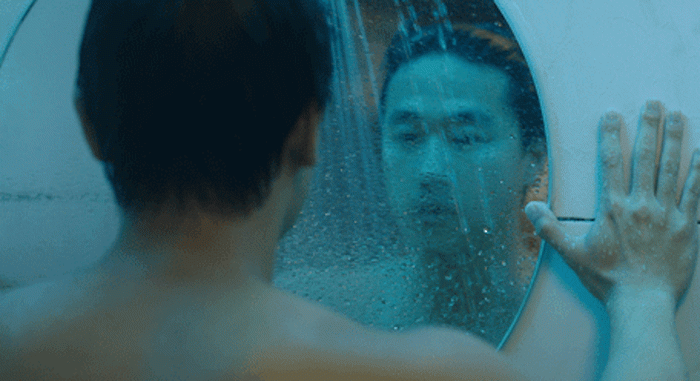
The spa forces David to confront his identity
How did your parents react when you came out?
I came out to my parents in 2011 and this is kind of the dirty little secret about my second short film (the one I did before SPA Night): I casted my own family in the film without telling them what the movie was about. And it was about a gay Korean-American man. I showed them the film to come out to them.
Seen that my filmmaking is tied to my sexuality, I think they are really happy that I found a lot of success with what I am doing so far. Personally they are very accepting of who I am but when it comes to especially Korean-American or Korean audiences, they get a little scared. But still I think they have the confidence in me that I am able to deal with any kind of resistance or criticism.
So it is a happy ending for you?
In a lot of ways – yes. In terms of my personal life and emotionally I am in a very good place. And I think it is because I am healthy with it that I am able to make these movies where I kind of look back at the darker, harder, more complicated moments. I really do hope that audiences see the movie and tell to themselves that yes, this characters are going through hard times but there’s always going be a sense of hopefulness and of looking forward to the future.
I still find it hard to believe that this is your first time in Korea after 22 years…
Yes. Now I am 30 years old and I came here for the last time when I was 8. It is totally different: the food that I remember, the landscape I remember… It is almost as if I had never been here before. And you know, I think my Korean when I was 8 years old was better than my Korean now.
So back home – in the States, you don’t speak Korean that much?
I don’t. I speak Korean with my family, with my parents but it is pretty limited like: 언제 먹어? (When are we eating) 빨리 가자 (Let’s go). A lot of my friends who are 2nd generation Korean Americans speak English to each other. They might drop a few words here and there but they are like 건배 (Cheers!). But it depends: some Korean Americans speak a lot more – we have a lot of 1.5 generation where people grew up in Korea as kids and then moved to LA when they were in their teens. And that’s what I find really fascinating about SPA Night: you see the different generations of emigrants.
How did you manage to have a completely Korean cast?
The casting was really tricky. One obstacle was just finding Korean-American actors: there are a lot of Korean people in LA and you think there would be more actors but there are not since there is not enough roles or the roles are really demeaning and kind of racist. People were giving me advice to cast a Japanese or a Chinese actor who could speak Korean with an accent. But for me that was the worst idea I had ever heard – I really wanted the movie to feel authentic and part of that authenticity is the language.
The other issue was the subject matter that we were dealing with – queer issues. I think it made some people uncomfortable. I really liked one young actor who auditioned for the role of David but he told me his mom really didn’t approve of the content of the film. She had said to him that if he’d took the part he would have to go to Korea and go into hiding.
But in the end we found the best actors for the respective part. Like Mrs Baek, the pushy church woman and the SPA manager, they are non actors – they are just friends of my parents who acted a long time ago but afterwards they’ve had families and run businesses. We were able to kind of rope them in and they were very happy to go back to acting for a little bit.
What about the actors who play David’s mother and father – they actually live in Korea, right?
Yes. Haerry Kim who plays the mother acted in a Korean American film called West 32nd. She did it when she was living in New York. I went through the cast list for that movie, saw her headshot and I thought she might be around the right age for the part. And so we tried to find her. And then Cho Youn-Ho who plays the father had acted in a short film that my producer and cinematographer had directed a few years ago. I thought he was really amazing. Fortunately he wasn’t doing a play at that time, so we were really excited to bring him over.
Would you like to make a film in Korea?
I would love to. But I think that if I make a film in Korea it would still be kind of from an outsider’s perspective. Because I am a foreigner in ways and then I am not in other ways. So it would be interesting to explore that kind of a grey area… I just need to figure out what’s the story, when can I make it and how do I find money…
For the podcast edition of this interview, head to KoreaFM here.
 Acclaimed actress Jeon Do-yeon is to be honoured at the 21st Bucheon International Fantastic Film Festival (BiFan) this year, in celebration of her 20 year career that began with Contact back in 1997.
Acclaimed actress Jeon Do-yeon is to be honoured at the 21st Bucheon International Fantastic Film Festival (BiFan) this year, in celebration of her 20 year career that began with Contact back in 1997.






